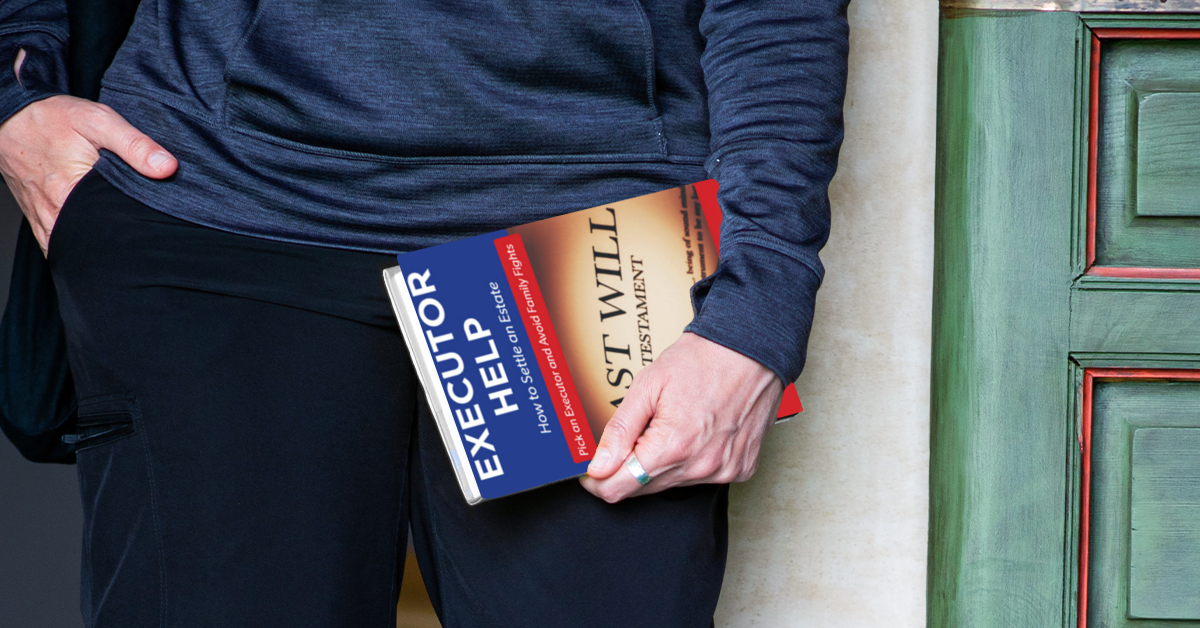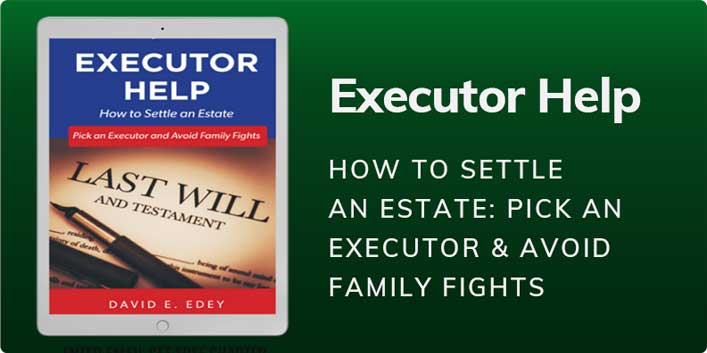- Home
- Problems with being an executor
Are you ready for the problems with executor of estate and the duties?
What are the problems with executor of estate and the job you must do.
An executor is a person or institution appointed by a testator (that’s a person who has made a will or bequeathed money or other valuables as part of a legacy) to carry out the terms of their will.
As an executor, you are responsible for making sure that any debts or creditors that the deceased may have incurred are paid off.
You must also ensure that a final tax return is filed on behalf of the deceased and any money owing to the government is paid in full.
Any remaining money or property is to be distributed according to the testator’s wishes.
This will require a careful reading of the will and, subsequently, taking the necessary steps to ensure the distribution of the testator’s remaining wealth according to their stated wishes.
Do you have to accept the role of executor?
This could be one way to avoid the problems with being the executor of the estate.
The decision is totally up to you. It’s not always an easy one.
If you are chosen by a relative or a friend to be an executor, you may feel honored to fill this role, especially as this is the person’s last requested favor of you.
You may also feel that you have no choice. The relative or friend likely chose you as someone who could be trusted to carry out their last wishes.
You may have also been selected as the fairest or most diplomatic member of that person’s family or community.
You may also feel that you are best able to have the estate settled with the least number of hassles in the shortest amount of time.
You also have the right to decline taking on the job of being an executor.
Other problems with executor of estate
Before you make the decision, ask yourself:
• Do I want to do this? Or do I feel that I must do this out of a sense of family obligation or friendship?
• Is it in the best interests of the people I love and myself to assume this responsibility?
Would it be better to leave this to someone else?
• Am I up to the task?
Here are some questions to ask yourself if you would make a good executor:
Are you honest?
• Do you have a lot of patience?
• Are you well organized?
• Do you pay attention to details? • Can you get along with other people?
• Do you have time to spare?
• Can you take time off from work during the day?
• Are you willing to take time off from work during the day?
Settling an estate can take six months to a year, and in some cases, even longer.

It took me seven years.
You’ll need to dedicate a number of hours (more than 100) on and off to overseeing everything to its necessary completion.
Deciding whether to accept the responsibility and the problems of being the executor may be difficult if you do not have one or more of the qualities I just talked about.
However, you shouldn’t be frightened away from this responsibility by a lack of expertise—legal or financial.
Professional assistance is always available through an accountant, financial adviser, real estate agent, and/or lawyer, with their payment typically made with some of the estate’s funds.
So, it won’t be coming out of your pocket. Make no mistake about it.
If you want to settle the estate as efficiently as you can, you are going to need a team of professionals.
The right professionals can help you with a lot of the problems of the executor of estate has to deal with and the other beneficiaries stay on track with a realistic timeline.
Even with a professional to help out, each estate and every family dynamic is unique.
Chances are things may not go as smoothly as you would think or like.
Therefore, if you decide to assume the responsibility of an executor, go into the process with your eyes wide open.

Don’t be worried by how family members or the other beneficiaries will react to you taking charge, or by their surprise or dissatisfaction with some aspect of the estate’s settlement.
From what I’ve experienced and have heard from clients, I firmly believe that every estate has a story that goes with it.
Long-festering, often deep-rooted family conflicts usually surface that may or may not have been apparent when the deceased was still alive.
As an executor, you need to have a bit of a thick skin because we’re talking about money, and money is important to a lot of people.
As an executor, you have to be prepared to answer questions about your conduct, and if you’re not willing to do it—if you’re going to get your back up and say,
“Oh, you’re accusing me of being a thief”—then you need to re-think if you want to do the job.
Don't get caught up with the problems with the executor of estate must put up with.
You can always say no.
- Home
- Problems with being an executor











